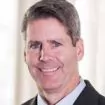- within Strategy topic(s)
When we described for you ( here and here) the briefing on the appeal of the half-billion-dollar verdict in the Pinnacle Hip Implant MDL's second bellwether trial, we left out maybe the most intriguing issue. This is one the likes of which we have not seen before: the case of the unpaid experts who were paid. Well, not really paid. They received a "thank you." In the form of money. So, yeah, paid. This unpaid paid expert issue was serious enough to trigger a motion for a new trial from defendants under FRCP 60(b) (3). The denial of that motion is now part of the appeal.
Defendants' opening appellate brief describes the issue in some detail. At trial, plaintiffs' counsel repeatedly argued or elicited testimony in front of the jury that two of plaintiffs' expert witnesses were not paid, contrasting them to defendants' experts whom plaintiffs' counsel described as giving "bought testimony." If true, we see why plaintiffs' counsel would stress this point to the jury. But . . . During depositions of those two experts for the next bellwether trial, defendants learned that they were in fact paid: one received $30,000; the other received $35,000 and a promise from plaintiffs' counsel to donate $10,000 to the expert's preferred charity. They sure seem like paid experts.
Plaintiffs try to clear this up in their opposition brief. In many respects, they only create confusion. They argue that, for instance, it was the defendants who paid one of these two experts—a full $10,000. But that expert was also a treater of two plaintiffs, and he appears to have charged defendants, as many treating doctors do, for appearing at two fact depositions about those plaintiffs. That is not an expert issue. After that detour, Plaintiffs' lawyers concede that they did, in fact, pay these two experts the $65,000 and send the $10,000 to the charity. But they stress that they paid the experts after trial, that they agreed to pay the charity after the expert's testimony, and that the experts did not ask for the payments. Instead, they claim that plaintiffs' counsel decided after trial on their own—that's sua sponte for us lawyers—to make the payments to the experts and the charity. They did this to show "appreciation" to the experts and to say "thank you." Setting aside that this could raise other concerns—that is, paying an expert based on success—plaintiffs use this as a basis to argue they were well within bounds to tell the jury that the experts were not paid. . . . It's starting to feel a little uncomfortable in here.
In their reply brief, defendants note, as they did in their opening brief, that one of the experts flat out admitted at his deposition that he always expected to be paid for his testimony at trial (and brushed off, because apparently they had to, the idea that the expert might have thought the defendants would pay him for testifying against them at trial). They also point out that the record shows that the promise to pay $10,000 to one of the expert's preferred charity was made before trial
At oral argument, things got even more interesting—believe it or not. The court asked plaintiffs' counsel to produce the $10,000 check to charity. Plaintiffs did so in a filing. Here it is, including the check and plaintiffs' counsel's explanatory letter. Take a close look at the check. It is dated December 4, 2015. That's five weeks before the January 11, 2016 trial. Not only the promise, but the actual payment, came before trial. . . . It's getting even more uncomfortable in here. Feel free to read the explanation in plaintiffs' counsel's letter. And here is the response from defendants.
So what can we make of all this. We really don't know. But we do know one thing. No matter what you say about the Pinnacle Hip Implant MDL, it's never boring. The Fifth Circuit will issue its opinion soon enough.
This article is presented for informational purposes only and is not intended to constitute legal advice.

